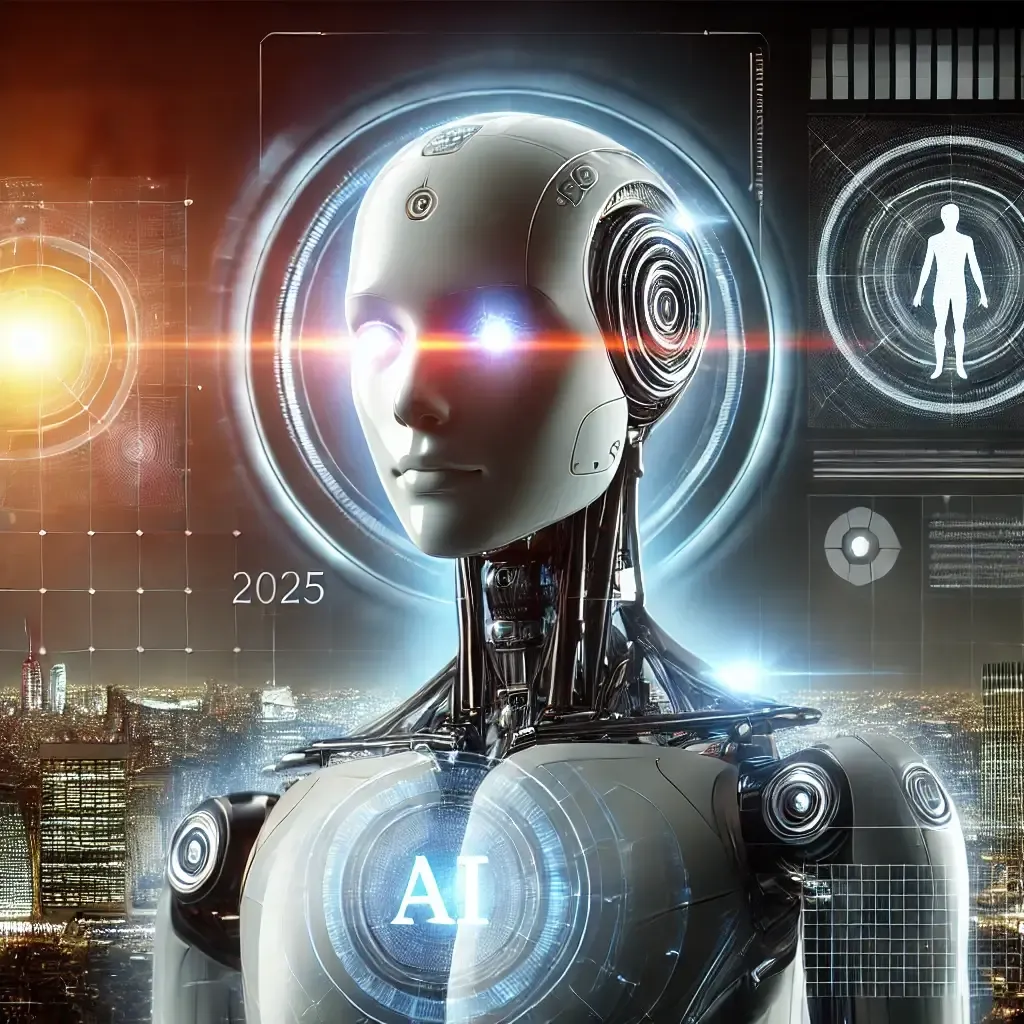Top Tech Trends 2025: Innovation & Digital Transformation
Technology is evolving at a rapid pace, and 2025 promises to be a game-changing year for innovation. From artificial intelligence to quantum computing, here are some of the most exciting tech trends shaping the future. This article explores each trend in detail, outlining their potential impact on various industries and everyday life.
Artificial Intelligence (AI) Evolution
.webp)
Artificial Intelligence (AI) is advancing rapidly, becoming more sophisticated and human-like in 2025. AI is no longer limited to basic chatbots and automation; it is transforming industries such as healthcare, customer service, and cybersecurity. With breakthroughs in machine learning and deep learning, AI-powered personal assistants will understand human emotions and provide personalized responses. In healthcare, AI will enhance diagnostics, detecting diseases at earlier stages. Businesses will leverage AI for customer experiences, offering automated support that feels natural. Additionally, AI-driven cybersecurity systems will detect and prevent cyber threats in real-time, ensuring better digital security.
Quantum Computing Breakthroughs
Quantum computing is set to revolutionize data processing, solving complex problems beyond the reach of traditional computers. Tech giants like Google, IBM, and Microsoft are leading the race to develop quantum systems that can analyze vast amounts of data at unprecedented speeds. In 2025, quantum computing could see applications in pharmaceuticals, finance, and logistics. For example, drug discovery will accelerate with quantum simulations analyzing molecular structures. In finance, quantum algorithms will enhance risk assessments and optimize trading strategies. As quantum computing grows, the demand for skilled quantum programmers will rise.
5G and Beyond: The Future of Connectivity
The global rollout of 5G networks is already underway, but 2025 could see the emergence of 6G technology. The next generation of wireless connectivity will offer faster speeds, ultra-low latency, and improved reliability. Smart cities will leverage 5G and 6G for enhanced infrastructure, optimizing traffic management and public services. Autonomous vehicles will benefit from real-time data exchange, improving road safety. Additionally, virtual reality (VR) and augmented reality (AR) applications will become more immersive, transforming gaming, education, and remote work. Expanding high-speed connectivity will also support the Internet of Things (IoT), allowing billions of devices to communicate seamlessly.
The Rise of the Metaverse: A Digital Reality
The metaverse is gaining momentum as businesses and individuals explore new digital experiences. By 2025, advancements in virtual reality (VR) and augmented reality (AR) will make the metaverse more interactive and engaging. From virtual offices to digital classrooms, people will work, learn, and socialize in immersive online environments. Companies like Meta (formerly Facebook), Microsoft, and Google are investing in metaverse technology, enhancing virtual interactions. The gaming industry is expanding into hyper-realistic virtual worlds, while NFTs (non-fungible tokens) are becoming integral to the metaverse economy, enabling digital ownership and trade.
Sustainable Tech Innovations: A Green Future
With climate change being a critical concern, technology is shifting towards sustainability. By 2025, green technology will take center stage in innovation. AI-driven energy management systems will optimize electricity usage in homes and industries, reducing carbon footprints. The adoption of electric vehicles (EVs) and improvements in battery technology will make sustainable transportation more accessible. Companies will focus on biodegradable electronics to minimize e-waste. Additionally, smart grids powered by renewable energy sources like solar and wind will enhance energy efficiency. Sustainable tech will not only benefit the environment but also create new job opportunities in the green sector.
Blockchain Beyond Cryptocurrency
Blockchain technology is expanding beyond cryptocurrencies like Bitcoin and Ethereum. By 2025, businesses and governments will use blockchain for secure transactions, supply chain management, and digital identity verification. Decentralized finance (DeFi) will offer financial services without traditional banks. Smart contracts, powered by blockchain, will automate various processes, reducing intermediaries. Governments are exploring blockchain for secure voting systems, enhancing electoral transparency. The healthcare industry is adopting blockchain to securely store patient records, ensuring privacy and data integrity. As blockchain technology matures, it will revolutionize multiple sectors beyond finance.
Autonomous Vehicles & Smart Transportation
.webp)
Self-driving cars and smart transportation systems are becoming a reality. By 2025, autonomous vehicles will rely on AI and real-time data to navigate safely. Companies like Tesla, Waymo, and Apple are investing in self-driving technology, aiming to improve transportation efficiency. AI-driven logistics and delivery drones will optimize supply chains, reducing delivery times. Public transportation systems will integrate AI-powered traffic management, minimizing congestion. The combination of autonomous vehicles, 5G connectivity, and smart infrastructure will redefine urban mobility.
Final Thoughts: Embracing the Future of Technology
As we move into 2025, technological advancements will continue to reshape industries and daily life. From AI-driven automation to sustainable innovations, these trends will impact businesses and consumers alike. Companies that adopt these technologies early will gain a competitive advantage, while individuals must stay informed to adapt to the changing landscape. Which of these trends excites you the most? Share your thoughts in the comments!
